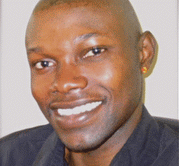If the Anti-Homosexuality Bill (also known as the “Kill the gays”) proposed by Ugandan parliament member David Bahati in 2009, imposed the death penalty or life imprisonment of HIV-positive homosexuals involved in same-sex relations, it has figured in the media for the last three years as a predominant catalyst for uproar from the international LGBT community. These infringements on such rights are far from absent in other African countries.
In Zambia, for example, criminalization and vilification of LGBT people is a serious institutional concern. Just this month, Human Rights Watch (HRW) reported a significant increase of arrests, prosecution and inhumane treatment of men “suspected of homosexual acts”. This is a violation of several international human and civil rights treaties such as the United Nations Convention Against Torture and the International Covenant on Civil and Political Rights (ICCPR), both of which have been ratified by Zambia. Similarly, the Zimbabwean government has escalated its attacks in the last year on LGBTI rights activists through police raids, unwarranted investigation and threatening staff of organizations such as the Gays and Lesbians of Zimbabwe (GALZ) which provides crucial social services, professional counseling and educational activities for sexual minorities.
Furthermore, the president of Gambia, Yahya Jammeh, has made openly homophobic public statements. On March 28 2013, at Parliament sessions in Banjul, the President’s words boded drastic and life-threatening consequences for LGBT people: “If you are convicted of homosexuality in this country, there will be no mercy for offenders (…) Homosexuality is anti-god, anti-human, and anti-civilization. Homosexuals are not welcome in the Gambia. If we catch you, you will regret why you are born (…) Allowing homosexuality means allowing satanic rights. We will not allow gays here”. This demonization and hugely discriminatory rhetoric not only poses an ethical hazard, but also presents a significant health issue since Gambians living with HIV/AIDS are reluctant to seek medical assistance and receive antiretroviral treatment out of fear that Gambian authorities will target them based on their sexual orientation.
Besides public health implications, discriminatory laws and government policies have impacted the number of internally displaced people (IDPs) in West Africa. LGBT people find themselves in an even more dire situation as LGBT refugees. Not being under any state’s jurisdiction, basically living in “No Man’s Land” is convincingly worse than living in a democratically lagging state. As a result, many sexual minorities have no other alternative but to flee or seek asylum in developed nations. This is a common phenomenon in places like Nigeria whose penal code punishes consensual gay sex with lengthy prison sentences (up to 14 years). Still, there is no guarantee that LGBT refugees will be granted asylum in foreign countries.
In 2012, for example, Nigerian Becley Aigbuza was denied help from the Nigerian Embassy on the premise of being gay and was also refused US citizenship because of questionable bank credit. US authorities consequently decided to deport him back to Nigeria. In a similar case, Olalekan M Ayelokun was refused asylum status in the UK on March 30 2012. This time a British judge ruled that there wasn’t sufficient evidence proven that Ayelokun was homosexual and was seeking refuge because of persecution caused by his sexual orientation, therefore opting out of David Cameron’s pledge he made in 2010 that: “Africans seeking asylum on the basis of sexual orientation and at real risk of persecution in their home countries should be allowed to stay in the UK”. Inevitably, seeking refuge cannot be the sole answer to LGBT-related discrimination, especially when there are no long-term guarantee of permanent asylum in supposedly “safer” countries.
If national laws and international treaties are not binding enough forces for LGBT rights to be respected, what will be sufficient? Considering the deeply ingrained social shunning and perpetual ostracization of sexual minorities by top-officials in many of the African countries, LGBT people will continuously be at risk until there is a true bottom-up, societal push for broadening common understandings of sexual rights. In this vein, furthering LGBT rights in this region of the world requires a grassroots-level movement uniting human rights defenders and activists, as well as an emphasis on relevant work of community-based organizations (CBOs). If the recent 2013 International Day Against Homophobia Campaign celebrated on May 17 is of any indication of normative rallying and mobilization around the issue, perhaps the LGBT community in African countries can make similar strides towards recognition and respect.
There remains the legislative and government action dimension of this equation to consider. A constitution is the legal foundation to any democracy. Indeed, a democratic government is first and foremost responsible for protecting citizen rights (political and civil) and being accountable to its people to uphold such rights. Once there is greater normative backing for LGBT rights, public policy will start to mold itself to better satisfy citizen demands, consistent with already existing constitutional infrastructure. The hope is thus that societal momentum will trigger a relational reconfiguration of African governments and their respective LGBT population.
 Log in
Log in









